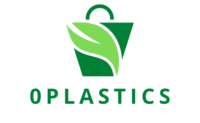Innovative startups are paving the way for a more sustainable future
Plastics have become an ubiquitous part of our lives, from the packaging we use to the clothes we wear. But their ubiquity comes at a cost – plastic pollution is choking our oceans, harming wildlife, and littering our landscapes.
But there is a growing movement to break the mold and disrupt traditional industries with plastic-free solutions. Innovative startups are developing new materials, packaging solutions, and business models that are not only good for the environment but also make good business sense.
Here are five ways these startups are disrupting traditional industries:
1. Food and Beverage
The food and beverage industry is a major culprit of plastic pollution. Single-use packaging, such as plastic bottles and straws, accounts for a significant portion of the waste stream. But startups are developing innovative alternatives. For example, some companies are making edible water bottles made from seaweed, while others are developing reusable cups and straws made from bamboo or stainless steel.
2. Fashion
The fashion industry is another major user of plastics. Synthetic fibers, such as polyester, are derived from oil and can take hundreds of years to decompose. But startups are developing new materials made from recycled plastic or natural fibers, such as hemp or bamboo. These materials are not only more sustainable but also offer better performance and durability.
3. Consumer Goods
Traditional household cleaning products are often packaged in plastic and contain harmful chemicals. But startups are developing new cleaning products made from natural ingredients and packaged in sustainable materials. These products are just as effective as traditional products but are better for the environment and our health.
4. Electronics
The electronics industry is another major generator of plastic waste. Phones, computers, and other devices are often packed in plastic and contain harmful materials. But startups are developing new devices made from recycled materials and designed to be easily repaired and recycled.
5. Construction
The construction industry is a major user of plastics, from insulation to pipes to flooring. But startups are developing new building materials made from recycled plastic or other sustainable materials. These materials are just as strong and durable as traditional materials but have a lower environmental impact.
The disruption of traditional industries with plastic-free solutions is still in its early stages, but it is a rapidly growing movement. Startups are proving that it is possible to develop sustainable products and business models that are not only good for the environment but also make good business sense. As awareness of the plastic pollution crisis grows, we can expect to see even more innovation in this space in the years to come.
In addition to the examples listed above, there are many other ways that startups are disrupting traditional industries with plastic-free solutions. Some companies are developing new technologies for recycling plastic, while others are working to educate consumers about the importance of reducing their plastic use.
The transition to a plastic-free world will not be easy, but it is necessary. By supporting innovative startups and making conscious choices about the products we buy, we can all help to break the mold and create a more sustainable future.
